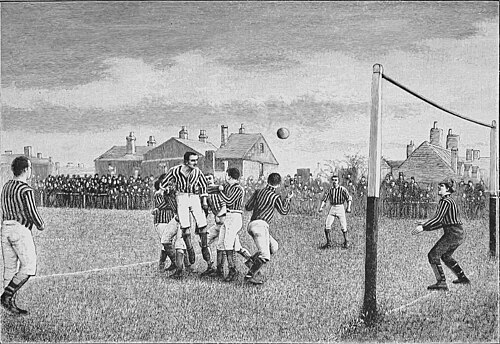
A group of friends playing soccer in the evening, enjoying a fun and energetic match under the warm glow of the setting sun.
Soccer, also known as football in most parts of the world, is much more than a competitive sport: it’s an ideal way to socialize and form lasting connections. Whether you’re joining a local team, playing a casual game with friends, or watching a match with fellow fans, soccer provides ample opportunities to meet new people and strengthen relationships. Here’s why soccer is one of the best sports for socializing.
1. Soccer brings people together
Soccer is a universal sport that transcends geographical, cultural, and language barriers. It’s played and loved by millions across the globe, which makes it a natural way to connect with people from different walks of life. Whether you’re playing in a local park or participating in a community league, soccer fosters a sense of togetherness. Fans gather in stadiums, pubs, and even living rooms to cheer for their favorite teams, creating a shared experience that brings people closer.
One of the reasons soccer is so social is that it’s easy to organize a game, even with a small group. All you need is a ball, an open space, and a few players to get started. This accessibility allows individuals to join impromptu matches, meet new people, and form new friendships. Soccer serves as a common ground for social interaction, regardless of one’s background or where they’re from.
GET OUR BEST SPORT ACCESSORIES AND SUPPORT US
2. Teamwork encourages communication and bonding
Soccer is a team sport that places a strong emphasis on cooperation, communication, and mutual support. On the field, players work together to achieve a common goal—scoring goals and defending their territory. To succeed, players need to communicate, whether it’s calling for the ball, coordinating strategies, or offering words of encouragement. These interactions build camaraderie and strengthen relationships between teammates.
The teamwork required in soccer also nurtures a sense of belonging. Players rely on each other’s strengths and skills, creating a bond that extends beyond the game. This collaborative aspect of soccer fosters trust and respect among participants. Even in casual games, these bonds can develop quickly, making soccer a social activity where friendships are built through cooperation and shared experiences. The communication skills gained on the field often carry over into real life, making it easier for players to connect with others in various social situations.
Moreover, soccer is often played in a relaxed environment where the focus is more on having fun than on winning. This creates a welcoming space where players of all abilities can participate. Newcomers and beginners are often guided and supported by more experienced players, which fosters a sense of inclusion and community.
MORE SPORT TIPS HERE
3. Soccer is inclusive for all skill levels
One of the key reasons soccer is such an excellent sport for socializing is its accessibility. Soccer doesn’t require expensive equipment or advanced skills to start, making it an inclusive activity for people of all ages and abilities. Whether you’re a professional player or just learning the game, soccer welcomes everyone. This accessibility creates a non-competitive atmosphere where people can join in, have fun, and socialize without feeling intimidated.
For beginners, the opportunity to learn and improve alongside others is an excellent way to bond. Experienced players often offer tips and advice, creating a mentoring environment that helps newcomers feel more comfortable. This supportive atmosphere helps break down social barriers and encourages people to connect with one another, regardless of their level of experience. As players grow in their skills, they also build friendships with teammates, many of whom share similar interests and backgrounds.
Furthermore, soccer can be played in many different formats—whether it’s a casual 5-a-side game or a full 11-a-side match—giving players the flexibility to choose how they want to engage with the sport. This means there’s always an opportunity for social interaction, whether you’re playing for fun, fitness, or competition. The inclusivity of soccer makes it a perfect sport for building social connections and friendships that can last beyond the field.








